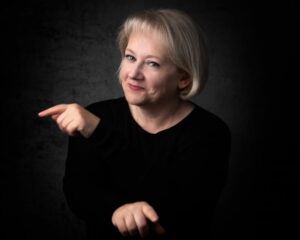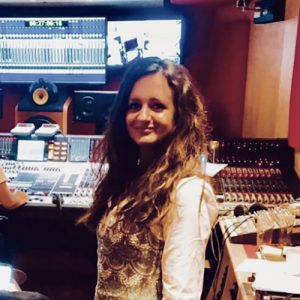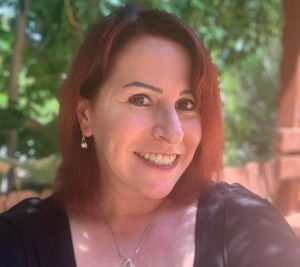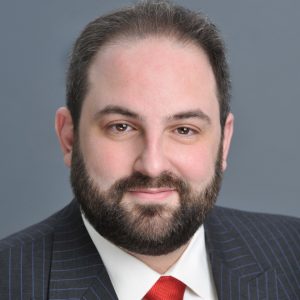Q&A Session
What inspired our board members to join IAFAR and what do they get out of it?
 Naomi Asher
Naomi Asher
Naomi is currently Vice President of Neighbouring Rights at Sony Music Publishing and serves as the President and Chair of the IAFAR boards in the US and UK. Her previous experience includes co-founding Wixen Music Publishing UK where she served as Director and President for 10 years.
What drove you to co-founding IAFAR in 2018? I was having issues with the AFM Sag Aftra Intellectual Property Fund. They had created a situation where artists weren’t able to get their international NR and it was incredibly frustrating. I knew if this was publishing, we could go to the NMPA or the MPA and get them to sue someone, but there was nothing like that in this income stream, so I decided we needed to make one.
How do you think IAFAR had been successful, so far, in educating artists in Neighbouring Rights? There is starting to be an awareness that there wasn’t before- which is great. We just need to keep going. To some extent, the lack of Live income over the last few years has been an incentive for artists to question whether other income streams are viable, and I think that is why Equitable Remuneration/ Neighbouring Rights/ Related Rights has become such a hot button topic.

Ann Tausis
Ann Tausis is our Treasurer and Vice Chair here at IAFAR and has 30+ years of experience in the Publishing and Neighbouring Rights sectors. Ann joined Kobalt Neighbouring Rights as Managing Director (now CEO) in 2013 and has since built the company both organically and through the acquisition of Fintage House/Rights Agency Ltd. in 2016 to become the largest Neighbouring Rights agent in the world.
What was the critical moment that really emphasized why we need to educate artists about their Neighbouring Rights?
There wasn’t a specific moment as such, but I realized pretty quickly when I started working in Neighbouring Rights that the music industry as a whole had very little understanding about this income source and a big part of what we have been doing from day one is to educate people and crushing some of the old myths about who is entitled to this money and where it comes from.
How do you feel about the fact that the Brennan bill wasn’t passed?
It is a shame that it didn’t go any further as I think there needs to be continued dialogue about how we fix the discrepancies that exist in the digital era of the music industry. I’m thinking especially about the fact that musicians don’t get paid anything for streaming, which surely everyone must agree is unfair. There are other countries in Europe (Spain and Hungary) who have introduced payments to musicians for streaming and that has been done without affecting the payments to the record companies and publishers and I am hopeful that there will be a way of doing so in other countries too going forward.

Stacey Haber
Stacey handles the legal and business affairs for IAFAR and has 30+ years’ experience as a music industry executive in London and New York. Currently the Founder of Inside Baseball Music Publishing, FoxPin Artist Management and The Music Firm, she has previously advised billion pound brands in the use of music in their marketing and advertising and global icons in their contract negotiations as part of the music teams of a well-known firms and companies.
Please explain why Neighbouring Rights negotiations are important for TV and film as well as the streaming of songs.
Most producers don’t realise that they will receive ISRC numbers when they release their soundtracks digitally, so they don’t address NR in their composer and sync agreements. And they don’t know they can register as rightsholder with PPL or another CMO so they never earn their NR to help recoup the cost of production. Can you imagine any producer giving up income knowingly? I can’t.
Have you ever seen issues arise due to artists not being properly credited for their work?
Yes, many times. Either when the label keeps their NR because they’re from a non-signatory country like the States, when label credits are wrong or incomplete, or when they don’t confirm the artists role on a recording. I had an A-list artist ignore PPL emails after their label copy only credited the backing vocalist s for the album and not the individual tracks. PPL won’t accept anything that isn’t on a track by track with ISRC number basis.

Chris Sheehan
Chris is the co-founder and CEO of Karousel Music, a London based CIC made up of musicians, songwriters and music industry professionals. He was an artist and songwriter for 17 years and has recorded 2 solo albums and 2 collaborative albums with Mark E Brydon (Moloko) and Matt Deighton (Mother Earth, Oasis, Paul Weller, solo) as well as having a wealth of co-writes. Chris ran 50:50 Studios in North London from 2005 to 2020, has worked for Help Musicians for 6 years, and now he is also a board member of IAFAR.
Having worked as a performer, songwriter and publisher can you provide an insight into how Neighbouring rights is important to each party?
Every penny you earn is important. In a modern music career, your income inevitably comes from multiple sources, and they all need to be in good shape if you’re to have a career that lasts. If you are an artist, you should be taking care of your neighbouring rights as an important part of your income. If you are a session musician, it’s your income and your pension. If you’re a small label or you self-release, not only is it an important income stream, but it also affects your chances of getting some sync activity if you haven’t registered everything properly, where you should.
You do a lot of charitable work within the music industry – is there any significant change you hope to see in 2022?
I hope to see the split at streaming more fairly divided between publishing and master, with a royalty for non-featured performers at last. At some point I very much hope – despite the heart-breaking lack of support for it at the DCMS enquiry from PRS and leading up to the vote from PPL – that there will be a royalty on a stream for the non-featured performers, as there should be. One wonders how effective a voice PPL can be for session players in moments like this when they also represent the record labels as rightsholders, who are vehemently against a change. We must all keep pushing because it’s right. Very grateful to the people that are speaking up for the non-featured performers as well as songwriters.
I hope to see the industry truly cementing Help Musicians as their charity of choice. Not a single one of us would have a job if it wasn’t for the people who give their lives to writing, recording and performing the soundtracks to our lives. They got around £16m out to around 19,000 musicians in crisis during the pandemic (and that figure will be higher now) and they were there when people really needed them. The difference is that while now people know the help is there, they’ve actually been doing this since 1921. A healthy industry needs healthy and busy musicians who are building a secure future for themselves and their families, with regular income, provision for the future and the resources to take care of both their physical and mental health – like in any other industry. I hope to see a lot of larger music companies recognising this, and raising money for them, and offering up resources so we can educate the next generation so that they might have healthy and happy careers while making the best music. Love Music? Help Musicians.

Steve McMellon
Steve has a PgD (with Merit) in UK, US and European Law of Copyright and Related Rights from King’s College School of Law (London) and is a full member of the UK Music Producers Guild. He is the CEO of Nashville and London based Southern Crossroads Music and has extensive experience of providing music for film and TV, both the production of new, bespoke music and also the placement of licensed repertoire. He has been an expert witness for the Court in several high-profile music copyright infringement cases.
How do you ensure that the producers or artists contributing music to film, TV and other audio-visual works are aware of their Neighbouring or Related Rights?
“It is not an easy task. As I have said on many occasions, most producers and artists understand the concept of copyright ownership (i.e. the “authorship” of musical, and where appropriate, literary, works). But I find often that, even very experienced producers or artists who have contributed to such a work, are not aware of their potential right to remuneration for their actual performance of (or in) that work. In the UK, that right is enshrined in Part II of the Copyright, Designs and Patents Act 1988 so maybe a lot of people don’t read past Part I.
On a serious note, it’s still an “awareness” project… making producers and artists but also their representatives and lawyers aware of these rights and ensuring that, if they are contributors to a “performance”, then they follow the correct route in order to establish that right.”
What do you feel has been your biggest achievement to date as a Board Member of IAFAR?
“My brief has really been to focus on the use of bespoke or licensed musical (and any related literary) works that are to be embedded into film, TV and any other audio-visual productions. It has been to raise this issue with producers, production companies, artists and musicians… and their reps and advisers. I think we’re getting there but “It’s a long and winding road”!

Lionel Lodge
As well as being an IAFAR board member, Lionel is the Founder and CEO of SyncLodge, the sync licensing project management system. On the creative side Lionel has written hundreds of songs and co-written many more. He has produced albums, engineered recordings, arranged music, performed 1000’s of live shows, and has 12 albums released under his name.
You have stated before that ‘The key, in [your] view, is enthusiasm paired with detailed focus; do you feel that these are traits that manifest within the IAFAR team?
Yes, very much so. It was these qualities, among others that made me want to be a member in the first place, and offer my support. It is quite the major endeavor to bring broad recognition to Neighbouring Rights, what they are and how to make sure they are correctly collected. I found the IAFAR team’s enthusiasm and drive for this inspiring.
How did you end up joining IAFAR and why is it important to you?
I was first introduced to IAFAR through meeting the founders, Stacey, Naomi, and Ann. They came on a podcast series I was doing to talk about Neighbouring Rights. I had heard of Neighbouring Rights before but wasn’t aware of how I was eligible to collect them. During that podcast conversation I learned a lot and was very impressed with the 3’s detailed knowledge and passion. So, I joined.

Gina Deacon
Gina heads up Absolute Rights Management and has worked with Absolute Label Services for 19 over 20 years. Absolute is committed to registering and sourcing royalties due to both Performers and Rights Holders. She is now dedicated to the role of educating artists on their royalty claims and how best we can work with them to collect what is rightfully due, in conjunction with PPL and the international collection societies.
What do you feel is the best means of educating an artist on their Neighbouring Rights?
Artists can log into the IAFAR website and have access to an abundance of guidance and information regarding royalties. We also have many podcasts available on all streaming platforms covering every possible NR topic. These can be accessed here: https://pod.link/1561945165 or search ‘Money In The Air’ – IAFAR.
What do you want to see change within the industry in 2022?
A greater understanding of Neighbouring Rights for both artists and labels. It is an important source of income but is so often overlooked or even confused with publishing. If we can educate as many artists as possible to claim their due income and they pass that message on .. and on .. and on, then that is a positive start to a change.

Tania Oliveira
Based in the United Kingdom, Tania Oliveira is the Director of Society Relations for Transparence Entertainment Group (TEG), a music rights organization that identifies, recovers and administers royalty and licensing income from various sources for music creators. Tania is also a professional musician and songwriter who was signed to a pop-punk girl band in her teens and is now an active session guitarist and bassist. Her first-hand experience witnessing poor management and misinformation inspired Tania to protect the rights of music creators through education and activism.
What was it that inspired you to join IAFAR and advocate for Neighbouring Rights education? Every territory operates differently, and it can be a bureaucratic nightmare for a musician (or their representative) to tackle worldwide neighbouring rights. I think it’s important that competing reps/agents can amicably share knowledge, advocate CMOs for greater transparency and ultimately get our clients the royalties they are owed!
How do you feel about the dismissal of the Brennan bill?
It’s disappointing, especially since UK Music reports that one in three jobs in music have been lost due to Covid. Kevin Brennan simply wanted copyright law to move with the digital times; enabling music creators to sustain themselves doing what they – and we – love…music!

Peggy Dold
Peggy Dold is CEO of Navigation Partners LLC, providing business development advisory services to Talent, Rights Holders, Technology, Entertainment and Media clients. Peggy has 20+ years of experience as a music executive in the Anglo and Hispanic music industry, has worked with a variety of musical genres, in multiple international markets, and has lived in all of the major U.S. music markets – NY, Miami, LA and Nashville. Prior to reactivating Navigation Partners LLC, Peggy was Senior Vice President and Director of Music & Entertainment for IBERIABANK/First Horizon’s Sports & Entertainment division until IBERIABANK’s merger with First Horizon Bank in 2021.
Why do you believe it is important to educate others about Neighbouring Rights?
Creators need to receive the income that is due to them. If they don’t register and claim the money that is rightly theirs to receive, the money ends up in the wrong hands.
What are you enjoying most about being part of the IAFAR team?
Everyone on this team is committed to the mission of Education and Advocacy and works tirelessly with the best interests for the overall music community in mind. IAFAR is comprised of true professionals who truly know the business. It’s a privilege to work together with this elite group of industry leaders.

Shari Hoffman
Based in Los Angeles, Shari Hoffman is Co-founder & CEO of Transparence Entertainment Group, an organization of veteran music creators & entertainment professionals established to effectively manage worldwide royalties for recording artists, master rights owners, record producers, and DIY music creators. A professional vocalist, Shari’s background includes record label promotion for multi-platinum recording artists, managing tour settlements for top grossing concerts worldwide, and representing above and below the line personnel for two entertainment unions. Prior to TEG, she served as COO for the AFM & SAG-AFTRA Intellectual Property Rights Distribution Fund. She serves on various boards in the music industry including the Independent Association for Artists & Rightsholders (IAFAR), the Los Angeles Jazz Society Advisory Board, and the Environment of People Foundation. Shari is a prolific artist advocate who strives to ensure that music creators have the proper education and tools to flourish.
How do you ensure that artists that you work with are properly educated on their Neighboring Rights?
As part of our on-boarding process, Transparence Entertainment Group conducts one-on-one sessions with every prospective client based upon their role(s). This outreach extends to the music industry as a whole, including IAFAR, other Boards and affiliations, and the entire community as a whole.
What pushed you to wanting to work in the Neighbouring Rights sector?
While working as COO at the AFM & SAG-AFTRA Fund, I found that many music creators were not being property credited on their recordings for various reasons. Following my tenure at the Fund, I felt there was a need for the expansion of representatives in this field in order to provide more comprehensive representation that would ensure that no stone would be left unturned and every possible monetary source was collected for those actually involved in the creative process.

Joshua Graubart
Joshua Graubart is a copyright and entertainment attorney based in New York City. Josh regularly represents filmmakers, performers, recording artists, composers and songwriters (and their heirs), music publishers, and record labels in resolving copyright infringement and royalty disputes. Josh has successfully represented three classes of American and foreign songwriters, music publishers, record companies, and recording artists in federal court in the United States, achieving settlements totalling almost US$10 million.
How common is it to see an artist lose out on royalties due to a lack of Neighbouring Rights understanding?
Sadly, it’s not uncommon. Even more common are heirs who haven’t the faintest idea what they own, and who have never heard of neighboring rights.
While international agreements and statutes on the Continent sharply distinguish ‘copyright’ from ‘neighboring rights’, in the US and the UK (and other common law jurisdictions), they’re all just
‘copyrights.’ As a result, even experienced lawyers who don’t frequently work often in the music industry have never heard the term ‘neighboring rights.’
Why did you choose to join IAFAR?
Several years ago, I represented classes of independent performers in a series of copyright infringement suits in the US. We achieved some creditable settlements, but one aspect of the experience stood out: we kept receiving communications from performers – and even more often, their heirs – who simply had no notion of what rights they had or how to exercise them. They were leaving money on the table to which they had no idea they were entitled. It seemed to me then, as it does now, that educating artists and their heirs on their rights was vitally important. I flew to London to attend IAFAR’s first annual meeting and was convinced it was a major step in the right direction.




